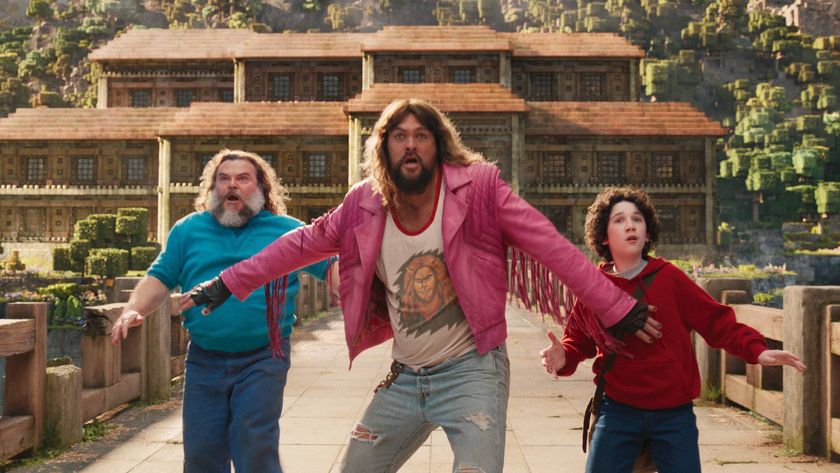The history of Mortal Kombat
Prepare yourself! We examine the original arcade hit that corrupted minds and led to the creation of the ESRB
It should go without saying the vast popularity of Mortal Kombat wasn’t its deep fighting engine… or lack thereof. No, it was because when Shang Tsung commanded you to “FINISH HIM!” you had access to a whole other move not possible in the rest of the game. For several rounds we’d wonder what those words even meant, then randomly the computer AI would tear our head off and everyone in the arcade lost their shit – how happen??
Even the arcade game cards (which showed moves for each character) didn’t explain how to perform the fatalities. It was a total mystery, on top of the whole Reptile business and then the stop-motion dragon-thing as a boss.
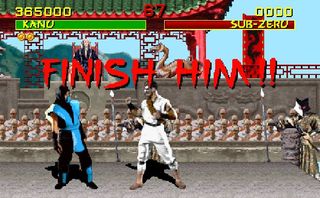
Above: The famous words we all remember. This isn’t kids stuff anymore
It may have been a gimmick, but it worked. Perhaps too well, as once it came time to bring this macabre experience to Sega and Nintendo consoles, the fervor peaked and suddenly parents realized what their kids were doing in those dimly lit arcades. And then the politicians caught wind – specifically Senator Joe Lieberman, who claimed Mortal Kombat, along with other violent video games, were corrupting young mindsand needed to be regulated.
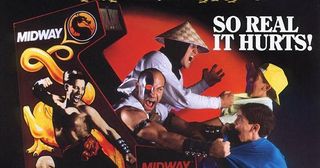
Above: Though to be fair, the arcade flyers DID show the kombatants assaulting kids…
The actual hearings remain some of the stupidest moments in game history. Ignorant leaders spoke about a topic they didn’t understand as Sega and Nintendo both tried to bury the other with accusations or misleading information; not our finest hour by a long shot.
This all, eventually, led to the creation of the ESRB, though that wouldn’t take effect until 1994. In the meantime, Sega began its own rating system, ranging from GA (General Audiences) to MA-17 (Mature audiences only). Oddly, the Genesis version of MK only received an MA-13 rating. All that fuss over a game that didn’t even hit the max rating? Surely senators had something better to do in 1993…
Sign up to the 12DOVE Newsletter
Weekly digests, tales from the communities you love, and more
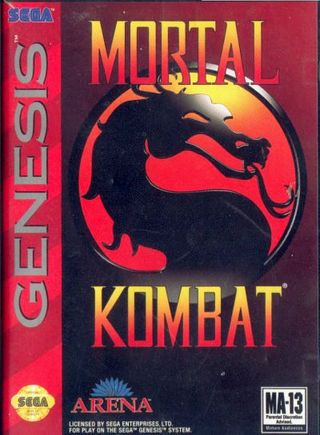
Above: The Sega Genesis version of MK, complete with its pre-ESRB MA-13 rating
Nintendo, on the other hand, aggressively censored its version of Mortal Kombat, demanding new (less fatal?) fatalities be added and the blood removed. This single move spoke volumes about Nintendo’s ‘80s and early ‘90s practices (a whole other topic we can’t even begin to hit here), but it also led to a perception that Nintendo wasn’t “cool” – Sega had blood, Nintendo didn’t. Lame.
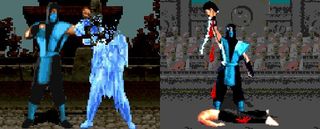
Above: Sure it’s less bloody, but is shattering a frozen corpse any less violent?
All this over one little fighting game! Its legacy is mixed; it’s often remembered as a clumsy, rushed fighter tossed out to capitalize on Street Fighter, yet no one can deny its far-reaching effects. The ESRB exists largely because of this one game, and the fighting boom of the ‘90s was no doubt extended and perpetuated by the amount of cash both SF and MK were pulling in on a weekly basis.
Above: The commercial for the SNES/Genesis release, which was so highly anticipated it was billed as “Mortal Monday” and promoted with this lengthy ad
Moving to today, is there anything the new MK pulls directly from the original? In a way, everything – all the classic moves that we know (spear, ice ball, uppercut etc) are back, and every character returns as well. The fighting system has been drastically improved though, so don’t think the new MK will be as reliant on the gore to get people to play. Hell, even the second Mortal Kombat learned a lot of lessons and improved on the original. Speaking of which, let’s touch on the other two games before we wrap this up…
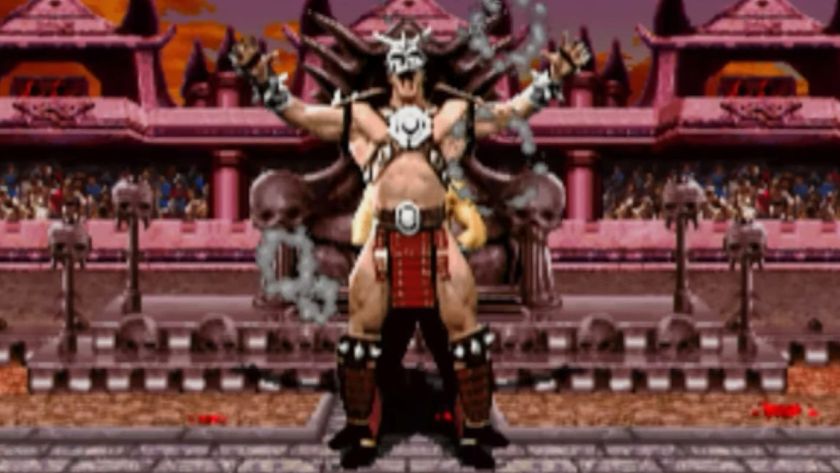
After 32 years, Mortal Kombat 2 has finally been ported to the one hyper-expensive '90s console that could actually do it justice
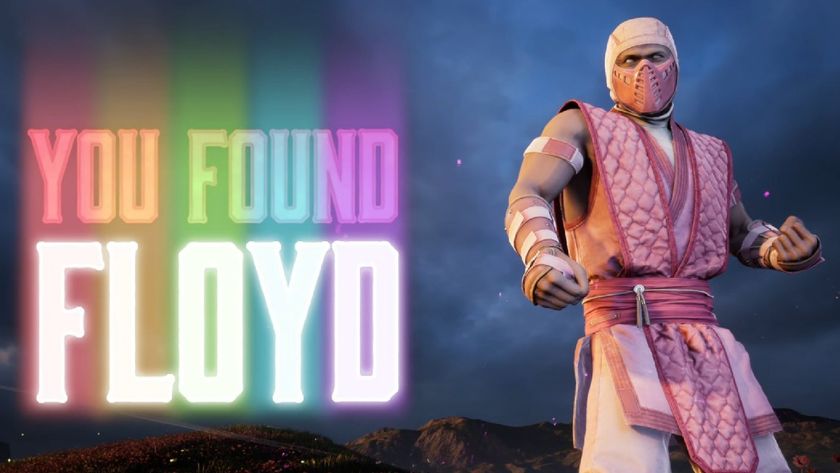
Mortal Kombat 1 makes good on a 30-year tradition of trolling fans by introducing a confusing, labyrinthine quest to fight pink Floyd, a new ninja
